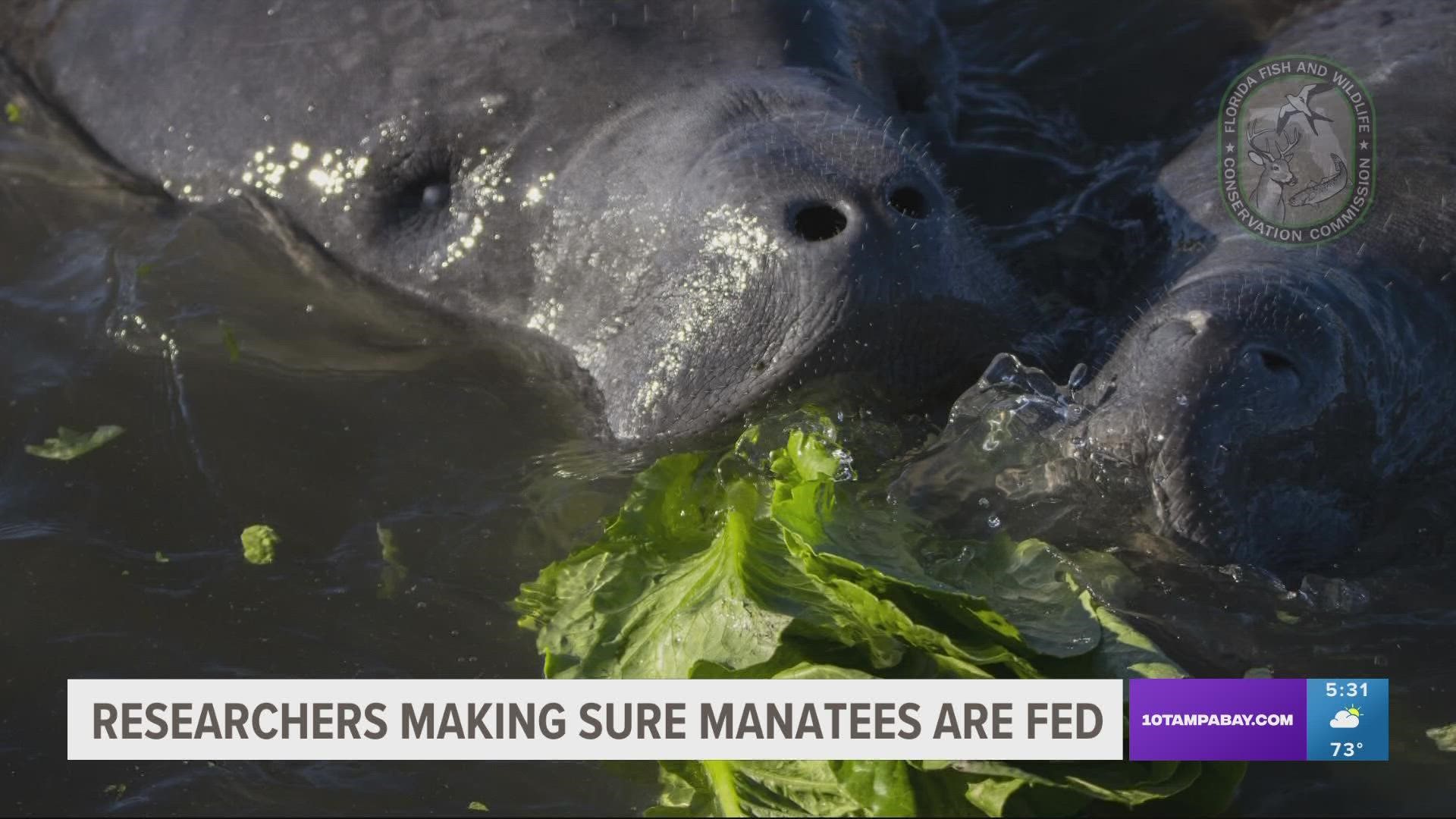CAPE CANAVERAL, Fla. — Over the Christmas weekend, temperatures dipped into the 30s across the Sunshine State. Humans aren't the only ones appreciative of a warm-up – manatees have been flocking to warmer waters to escape the cold.
On Wednesday, the Florida Fish and Wildlife Conservation Commission shared an update on its manatee feeding program along the east coast of the state.
"We're ready for January, we're ready for peak season," Michelle Pasawicz, the on-site lead for FWC's joint unified command, said. "Staff are still on-site, continuing to monitor and survey manatees and they're providing produce to manatees depending on how many are at the feeding location."
FWC is investigating an unusual mortality event of manatees along the East Coast.
"Last week, staff began establishing the Temporary Field Response Station and UC Command Center for the 2022-2023 winter season at Florida Power & Light Company’s Cape Canaveral Clean Energy Center in Brevard County," FWC shared in an update. "The Response Station supports several ongoing UME response operations in the central Indian River Lagoon, such as manatee rescue, carcass recovery, limited field health assessments, and a short-term, supplemental feeding trial for manatees at this site."
The goal is to reduce the need for rescue and rehab.
"We have not documented any carcasses or manatees in distress in the temporary field response area station or the CCEC warm water discharge," Pasawicz said.
Zoo Tampa has a manatee rehab facility. The director of marine life and animal programs said so far, no cold weather impacts have brought manatees in.
"Thankfully, we did not have any manatees come in over the weekend," Tiffany Burn explained. "So we're very hopeful that they all found their warm water sights and stayed put through the cold snap that we had."
Clearwater Marine Aquarium also rehabilitates manatees. CMA's president said it may be too soon to say if the cold weather is to blame for any manatee deaths.
"But I have no doubt, you know, based on past experience that we may see some unfortunate deaths as a consequence," Dr. James Powell said.
In the Tampa Bay area, Powell said most manatee deaths are due to watercraft collisions.
"The situation over on the east coast, it's very complex, because it's driven by nutrients going into the Indian River Lagoon that drives algal blooms," Powell said. "And those algal blooms shade out the seagrass, like any grass it eats like to grow. So it's not an easy solution to solve. With manatees and boats, we can create sanctuaries, we can slow them down."
FWC's panel of experts said they are "cautiously optimistic" about Florida manatees' overall health. But it'll take years before their main food source – seagrass – goes back to acceptable levels.
"The animals that we've had a chance to have our hands on or observe, most look like they're in pretty good condition," Ron Mezich, FWC's joint unified command provisioning branch spokesperson, said. "We think that's in part because of forage being available in Mosquito Lagoon through most of the winter and fall."
So far this year, there have been 783 manatee mortalities. At this time last year, Florida saw 1,080 deaths.

